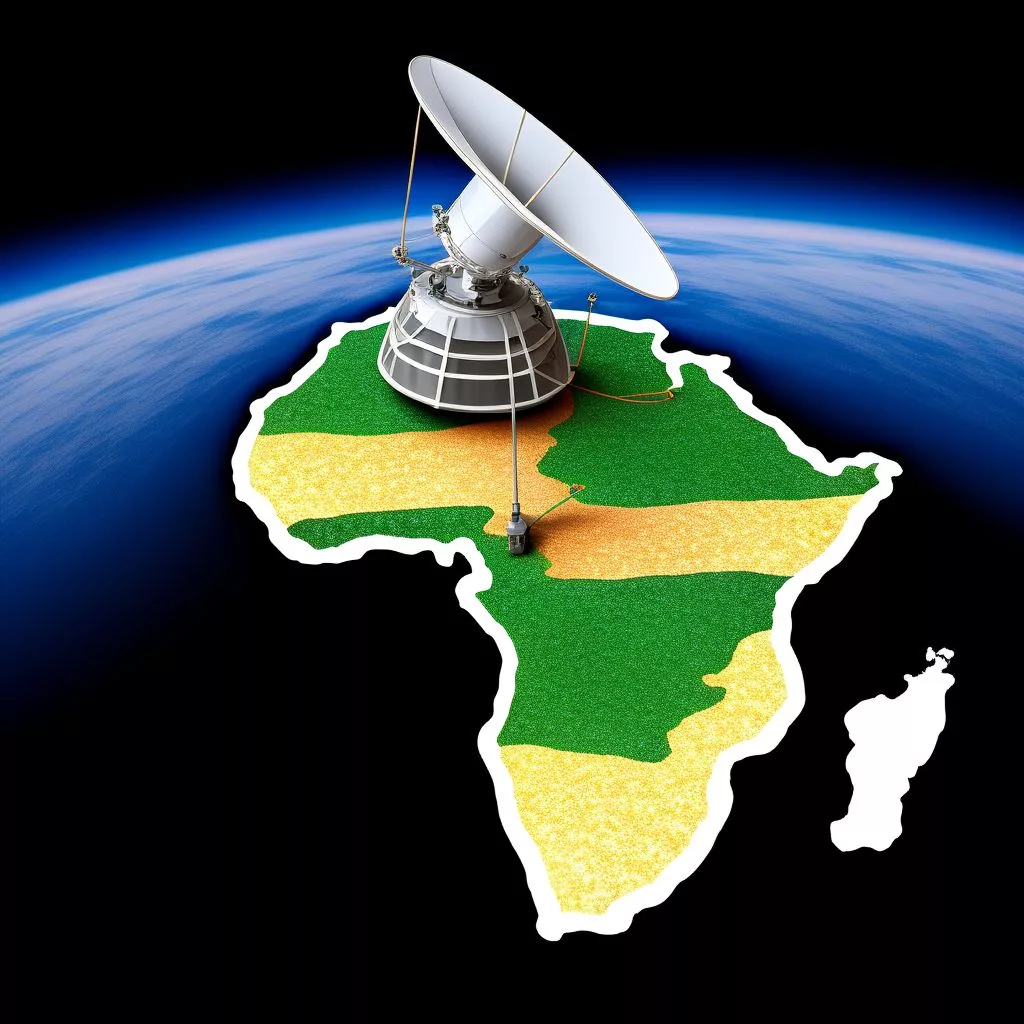Elon Musk’s Starlink is facing a tough time in South Africa because it hasn’t applied for the required license, which involves local laws aimed at helping black South Africans gain economic power. Musk stirred up controversy by suggesting that he’s being blocked because of his race, but South African officials quickly denied this claim. They insist that Starlink can operate if it follows the rules, which require foreign companies to share ownership with local groups. The debate highlights the ongoing struggle between attracting foreign investment and promoting equality in South Africa, making it a hot topic for many.
Why is Elon Musk’s Starlink facing challenges in South Africa?
Elon Musk’s Starlink is encountering regulatory hurdles in South Africa primarily due to local Black Economic Empowerment (BEE) laws, which require foreign companies to comply with specific equity requirements. Without a license application submitted by SpaceX, operational approval remains pending.
Musk’s Bold Claim Draws Global Attention
Elon Musk, the enigmatic entrepreneur, has once again turned the spotlight on South Africa, his birthplace. This time, the controversy centers around his ambitious Starlink satellite internet service, which Musk claims faces obstruction in South Africa due to his ethnicity. Government officials quickly rebuffed this assertion, insisting that Starlink has not yet applied for the necessary operational license. This unfolding drama, rich in historical, political, and economic facets, serves as a compelling case study in modern international business and regulatory policy.
Musk’s Controversial Tweet and Government Response
Elon Musk, originally from Pretoria, South Africa, and now a prominent figure in the United States, is no stranger to stirring debate. He took to X, the social media platform he owns, to air his grievances. “Starlink is not allowed to operate in South Africa, because I’m not black,” Musk tweeted. This statement seems to criticize South Africa’s Black Economic Empowerment (BEE) laws, which require foreign-owned telecommunications companies to divest at least 30% of their local operations to historically disadvantaged groups.
Clayson Monyela, spokesperson for South Africa’s Department of International Relations and Cooperation (DIRCO), quickly countered Musk’s claim. “Sir, that’s NOT true & you know it! It’s got nothing to do with your skin colour. Starlink is welcome to operate in South Africa provided there’s compliance with local laws,” Monyela tweeted, emphasizing that this principle is standard in global international trade and investment.
Regulatory Hurdles and Official Clarifications
The Independent Communications Authority of South Africa (ICASA) also weighed in, clarifying that neither Starlink nor its parent company, SpaceX, had submitted a license application. TechCentral, a South African tech news outlet, reported that SpaceX has lobbied ICASA to reconsider the 30% equity requirement. However, the regulator remains steadfast in its stance. Communications Minister Solly Malatsi has reportedly urged ICASA to consider alternative measures, such as “equity equivalents” like skills development, to allow companies like SpaceX to comply without selling shares to local investors. Despite these ongoing discussions, no formal changes have been made to the regulatory framework.
The Broader Implications of BEE Laws
South Africa’s Black Economic Empowerment laws aim to rectify historical injustices by promoting economic participation among the country’s black majority. However, these laws often draw criticism for potentially deterring foreign investment. Musk’s latest comments have reignited this debate, highlighting the tension between regulatory compliance and economic inclusivity. While Starlink has expanded its operations across multiple African countries, it has faced licensing challenges not only in South Africa but also in Namibia and Cameroon, according to Business Insider Africa.
The timing of this controversy is particularly significant. Diplomatic tensions between Pretoria and Washington have been escalating, especially after former U.S. President Donald Trump suspended American aid to South Africa over land reform policies. Additionally, South Africa’s genocide case against Israel at the International Court of Justice has further strained relations. Musk’s remarks come amid these broader geopolitical dynamics, adding another layer of complexity to the discussion.
A Polarizing Figure in a Complex Landscape
Elon Musk, often a polarizing figure, continues to provoke controversy on the global stage. Known as the world’s richest man and a top advisor to Trump, his latest comments have ignited fresh discussions about foreign investment, regulation, and South Africa’s approach to economic transformation. However, this episode seems less about Musk’s background and more about whether his company is willing to follow the rules. The question remains: can a balance be struck between adhering to local laws and fostering an environment conducive to foreign investment?
Those familiar with South Africa’s socio-political landscape understand the nuances of this case. The country has a long history of grappling with issues of race and economic inequality. The BEE laws, while controversial, aim to address these systemic issues. However, the implementation of such policies often leads to unintended consequences, such as deterring foreign investment. This creates a complex interplay between policy objectives and economic realities, making the regulatory environment challenging for companies like SpaceX.
The Promise and Challenges of Starlink in South Africa
Starlink’s potential entry into the South African market could bring significant benefits. The service promises high-speed internet access to remote and underserved areas, potentially revolutionizing the country’s digital landscape. However, regulatory compliance remains a critical hurdle. The ongoing discussions between SpaceX and ICASA highlight the complexities of navigating South Africa’s regulatory framework. While alternative measures like “equity equivalents” are being considered, the absence of formal changes to the regulatory framework remains a significant barrier.
As the debate continues, it is essential to consider the broader implications of this controversy. The discourse around BEE laws and foreign investment reflects deeper issues within South Africa’s socio-economic fabric. Addressing these challenges requires a nuanced approach, balancing the need for economic inclusivity with the realities of attracting foreign investment. Musk’s comments, while controversial, have sparked an important conversation about the future of economic transformation in South Africa.
The Larger Global Context
In conclusion, the case of Starlink in South Africa is a microcosm of broader global trends. It highlights the challenges and opportunities inherent in navigating complex regulatory environments. As countries grapple with the dual imperatives of economic inclusivity and attracting foreign investment, the lessons from this case will be instructive for policymakers and business leaders alike. The discourse continues, and the outcome of this saga will undoubtedly shape the future trajectory of foreign investment in South Africa.
The nuances of Musk’s situation in South Africa and similar cases worldwide emphasize the need for a balanced approach to regulation and foreign investment. While the aim is to foster economic inclusivity, it is equally important to create an environment that welcomes innovation and investment. As this debate unfolds, it will serve as a critical reference point for future discussions on international business and regulatory frameworks.
FAQ: Elon Musk and the Starlink Controversy in South Africa
Why is Elon Musk’s Starlink facing challenges in South Africa?
Elon Musk’s Starlink is encountering regulatory hurdles due to South Africa’s Black Economic Empowerment (BEE) laws, which mandate that foreign companies comply with specific equity requirements. Starlink has not submitted a license application, and without this, it remains unable to operate legally in the country.
What was Elon Musk’s controversial claim regarding Starlink’s operations?
Musk suggested that Starlink is being obstructed from operating in South Africa because of his race. He made this statement on social media, implying that the local laws targeting economic empowerment for black South Africans were discriminatory against him. Government officials promptly denied his claim, stating that the issue is related to compliance with local regulations, not his ethnicity.
How has the South African government responded to Musk’s claims?
South African officials, including Clayson Monyela from the Department of International Relations and Cooperation, have refuted Musk’s assertions. They emphasized that Starlink is welcome to operate in the country as long as it complies with local laws, which include requirements for foreign companies to share ownership with local groups.
What are the implications of South Africa’s Black Economic Empowerment laws?
The BEE laws aim to promote economic participation among the black majority in South Africa, addressing historical injustices. However, these laws are often criticized for potentially deterring foreign investment. The current debate around Starlink illustrates the tension between regulatory compliance and the need to attract foreign businesses to stimulate the economy.
What challenges does Starlink face beyond South Africa?
In addition to South Africa, Starlink has encountered licensing challenges in other African nations like Namibia and Cameroon. These difficulties reflect broader issues related to regulatory compliance and local economic policies, which can complicate international business operations in the region.
What are the potential benefits of Starlink’s entry into the South African market?
If Starlink can navigate the regulatory framework successfully, it promises to provide high-speed internet access to remote and underserved areas in South Africa. This could significantly enhance the country’s digital landscape and facilitate greater economic participation. However, achieving this requires compliance with local laws, which remains a significant hurdle for the company.












